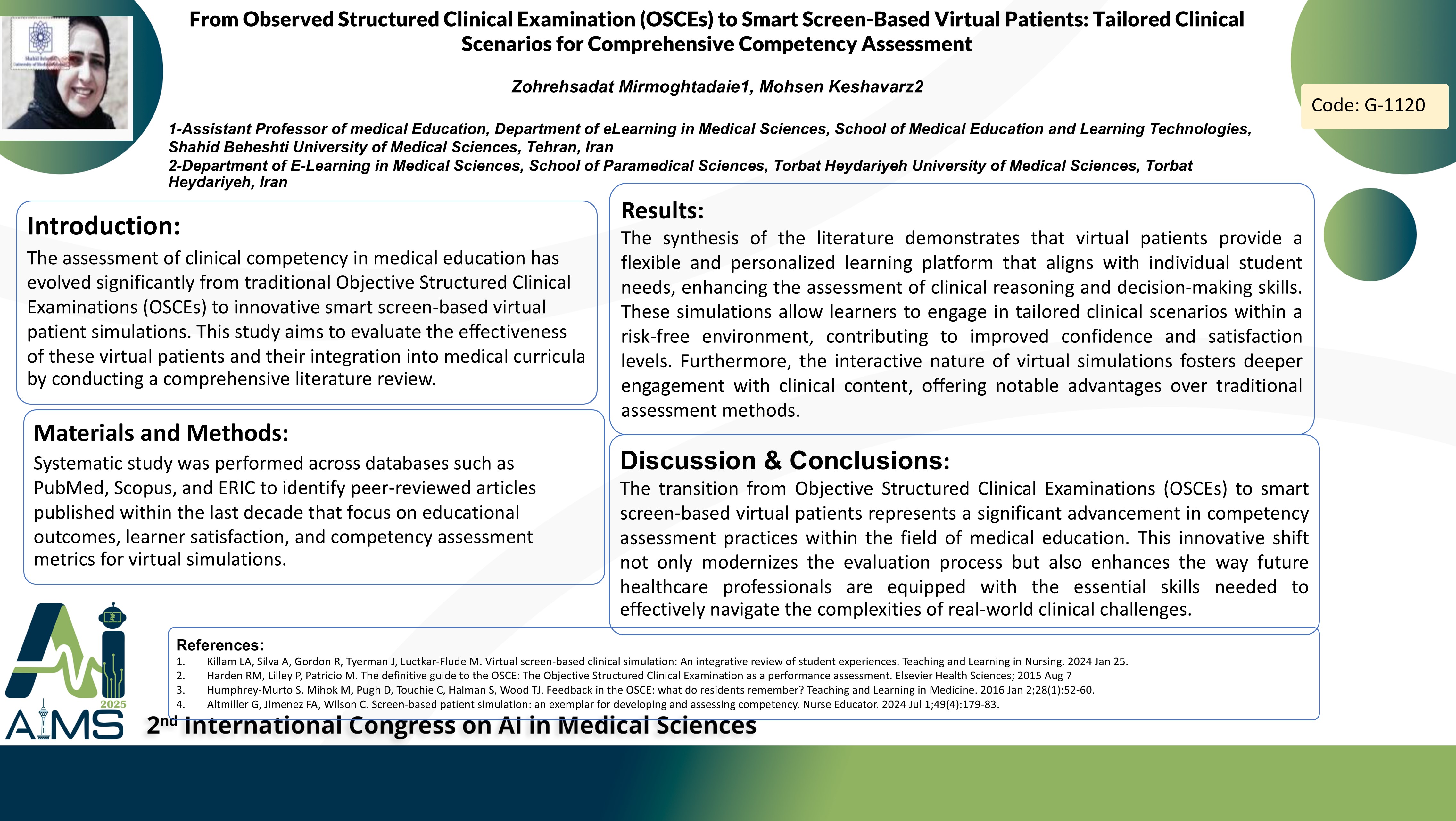From Observed Structured Clinical Examination (OSCEs) to Smart Screen-Based Virtual Patients: Tailored Clinical Scenarios for Comprehensive Competency Assessment
Code: G-1120
Authors: Zohrehsadat Mirmoghtadaie * ℗, Mohsen Keshavarz
Schedule: Not Scheduled!
Tag: Intelligent Virtual Assistant
Download: Download Poster
Abstract:
Abstract
Background and aims: The assessment of clinical competency in medical education has evolved significantly from traditional Objective Structured Clinical Examinations (OSCEs) to innovative smart screen-based virtual patient simulations. This study aims to evaluate the effectiveness of these virtual patients and their integration into medical curricula by conducting a comprehensive literature review. Method: Systematic study was performed across databases such as PubMed, Scopus, and ERIC to identify peer-reviewed articles published within the last decade that focus on educational outcomes, learner satisfaction, and competency assessment metrics for virtual simulations. Results: The synthesis of the literature demonstrates that virtual patients provide a flexible and personalized learning platform that aligns with individual student needs, enhancing the assessment of clinical reasoning and decision-making skills. These simulations allow learners to engage in tailored clinical scenarios within a risk-free environment, contributing to improved confidence and satisfaction levels. Furthermore, the interactive nature of virtual simulations fosters deeper engagement with clinical content, offering notable advantages over traditional assessment methods. Conclusion: The transition from Objective Structured Clinical Examinations (OSCEs) to smart screen-based virtual patients represents a significant advancement in competency assessment practices within the field of medical education. This innovative shift not only modernizes the evaluation process but also enhances the way future healthcare professionals are equipped with the essential skills needed to effectively navigate the complexities of real-world clinical challenges. By utilizing advanced technology and interactive simulations, this approach allows students to engage in realistic clinical scenarios, fostering critical thinking and decision-making abilities. As a result, they are better prepared to handle patient interactions, diagnose conditions, and develop treatment plans, ultimately leading to improved patient care and outcomes. This evolution in assessment practices underscores the importance of adapting medical education to meet the demands of a rapidly changing healthcare landscape.
Keywords
OSCEs, Smart Screen-Based Virtual Patients, Competency,
